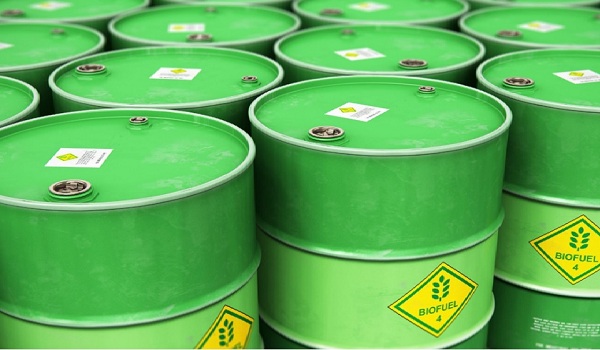Indian Prime Minister announced at the G20 Energy Ministers’ meeting that India has rolled out 20% ethanol-blended petrol in 2023 and aims to cover the entire country by 2025.India’s ethanol production has diversified from cane molasses to various feedstocks like rice, maize, and other grains.This move is part of India’s commitment to reducing dependence on fossil fuels and promoting sustainable energy solutions.
Ethanol
- Ethanol, also known as ethyl alcohol, is a biofuel produced from various sources such as sugarcane, corn, rice, wheat, and biomass.
- The production process involves the fermentation of sugars by yeasts or via petrochemical processes such as ethylene hydration.
- Ethanol is 99.9% pure alcohol that can be blended with petrol to create a cleaner fuel alternative.
- Apart from being a fuel additive, ethanol production yields valuable byproducts like Distillers’ Dried Grain with Solubles, and Potash from Incineration Boiler Ash that find applications across various industries.
Byproducts of Ethanol Production
Distillers’ Dried Grain with Solubles (DDGS)
- DDGS is a byproduct of grain-based ethanol production.
- It is the residue left after the starch in grains is fermented and ethanol is extracted.
- DDGS is a valuable animal feed with high protein content and is used to supplement livestock diets.
Potash from Incineration Boiler Ash
- The ash remaining after Ethanol Production in the boiler contains up to 28% potash.
- This ash is a rich source of potash and can be utilized as a fertilizer.
Applications of Ethanol as Fuel
- Ethanol is used as a renewable and sustainable biofuel alternative to gasoline in the transportation sector.
- It can be blended with petrol in various proportions, such as E10 (10% ethanol, 90% petrol) and E20 (20% ethanol, 80% petrol).
- The Indian government has implemented the Ethanol Blending Programme to promote the use of ethanol as a renewable fuel.
- The program aims to blend ethanol with petrol to reduce the country’s dependence on imported crude oil, cut carbon emissions, and boost farmers’ incomes.
- Ethanol blends help reduce greenhouse gas emissions and air pollutants, contributing to cleaner air and mitigating climate change.

